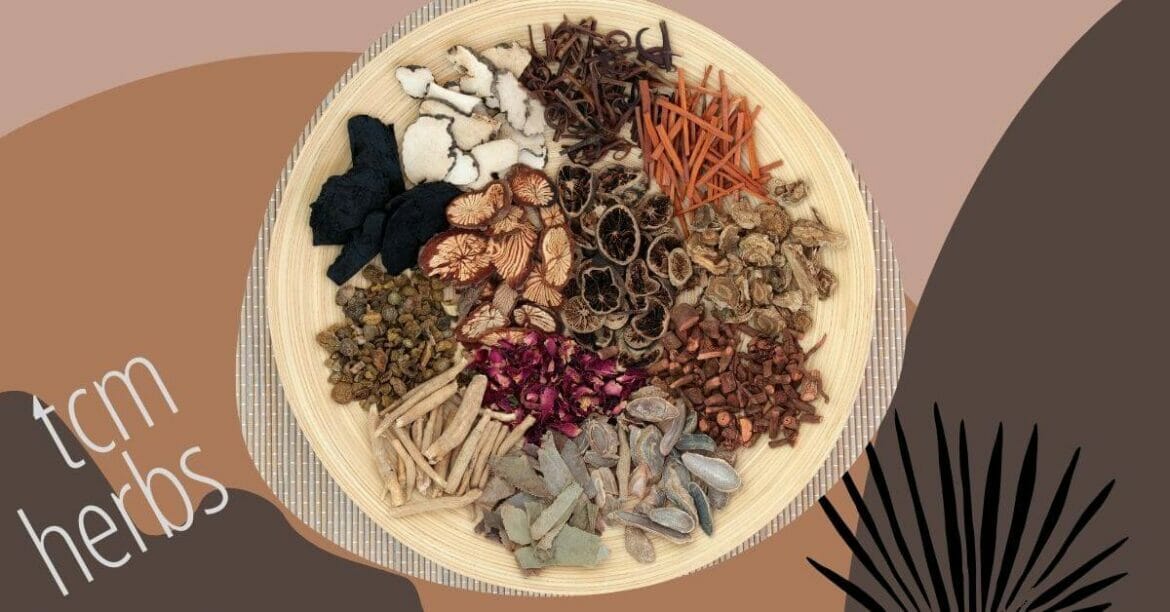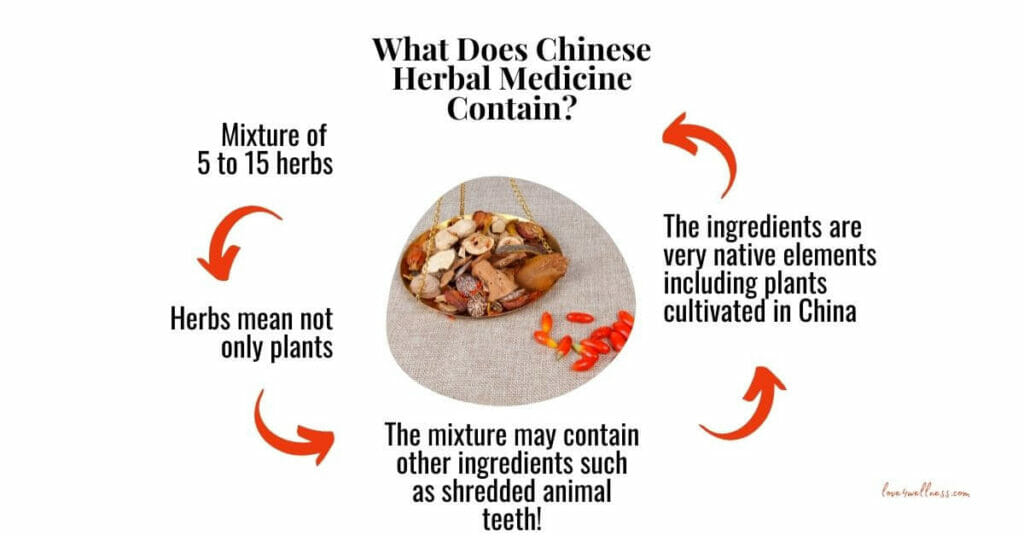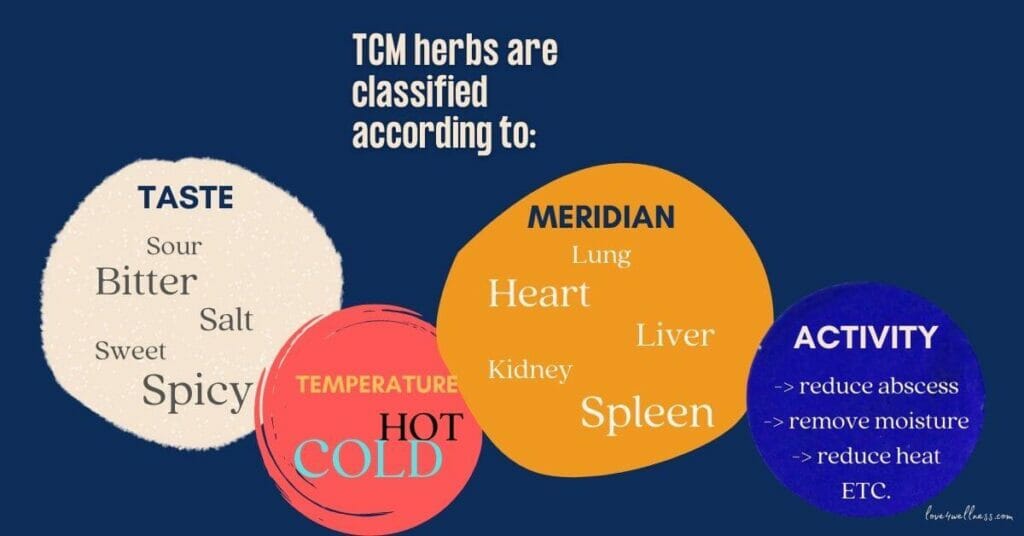Chinese Herbal Medicine, a 3000-year old healing system, is a part of Traditional Chinese Medicine (TCM). It uses herbs to bring energy balances in your body and thus treat various medical conditions. Even today, the medicine system stays relevant, providing cures to many diseases. Indigenous to the Chinese, the health system aims to promote health and well-being using herbs native to China. This article explains how TCM herbs are classified and what you can expect when reaching out to a Chinese herbal medicine expert.
Chinese Herbal Medicine – What Does It Contain?
Herbal treatments in TCM use a mixture of herbs; the quantity varies between five and up to fifteen different herbs. However, you may be surprised to know that herbs are not synonymous with plants alone in Chinese tradition.
You may find Chinese herbal recipes with ingredients such as shredded animal teeth. Thus, the mixtures often are a composition of very native elements, including plants cultivated in China.
How are TCM herbs classified?
Every herb has a taste. Further, every herb has certain qualities. Some herbs have a cooling effect, and others have a warming effect. Besides, every medicine has an impact on specific organs or parts of the body. And they cause a particular activity. Therefore, the Chinese herbal medicines are classified according to the taste, temperature behaviour, meridian acted upon, and the kind of activity.
TCM Herbs classified:
1. By taste
The taste of the herb defines the effect. TCM texts document five tastes associated with a herb- sweet, sour, salty, bitter, and pungent/spicy. Every herb will have a predominant taste, and according to the taste, the medicinal qualities vary.
i) Sourly
Herbs with a sour taste supplement the juices and fluids. It prevents leakage of any type of fluid, such as sweat, sputum, semen, vaginal fluids, and blood.
Conditions treated include diarrhoea, intestinal bleeding, excessive sweat, frequent urination, and semen leakage.
Popular herbs with sour taste: Schizandra, Terminalia, Bloodwort root, Alum, Red peony.
ii) Bitterly
Herbs with bitter taste drain and dry fluids and move things in a descending direction, such as inducing bowel movements.
The herbs treat conditions such as constipation, asthma, and retention of dampness.
Popular herbs with a bitter taste: Cnidium seeds, Stemona root, Betel nut, Stephania, Wormwood, Angelica root.
iii) Sweetly
Sweet tasting herbs relax, harmonise, and tone.
They alleviate pain and spasms and nourish the middle jiao (stomach and spleen). Further, they are added to herbal mixtures to make them taste better.
Popular herbs with a sweet taste: Morinda root, Bletilla Rhizome, Gingko nut, Lily bulb, Hyacinth bean.
iv) Spicy
Spicy herbs can scatter, disperse, and move.
Conditions treated include pulmonary infections, common cold, blood stasis, fibromyalgia.
Popular spicy herbs: Ginger, Cayenne, turmeric, cloves.
v) Salty
Herbs with salt taste have the ability to soften, purge, and drain.
Such herbs treat conditions such as constipation, phlegm reduction, and flushing out toxins.
Popular herbs with salt taste: Swallowwort root, Seaweed, Kelp, Cuttlefish bone.
2. By temperature behaviour
Further, every Chinese medicinal herb thermally affects the human body. Therefore, when the appropriate herb is used, it balances Yin-yan energy bringing harmony to your body.
For example, when inflammation is present, your body is experiencing excess heat, and the cold temperature of the medicine (herb) balances this heat.
- Some cooling herbs: Bletilla Rhizome, Red Peony, White Peony, Rice, Un-ripe wheat, Japanese thistle, Salvia root, Mung bean.
- Some warm herbs: Cynanchum Rhizome, Morinda root, Stemona root, Betel nut, Areca seeds, Angelica root, Cinnamon, Licorice root.
3. By meridian
Every herb impacts a specific meridian which means the medicine will affect one or more organ systems.
Accordingly, Spicy herbs are associated with lung meridian, Sweetly herbs to Spleen meridian, Sour herbs to liver meridian, Salty herbs to Kidneys, and Bitter herbs to Heart meridian.
4. By the kind of activity
Herbs, according to their taste and temperature behaviour, act on a certain organ or system, providing a particular desired effect. Hence, the herbs are classified according to their effect on the body, such as reducing abscesses, reducing heat and taking moisture away, etc.
So, that is how the TCM herbs are classified. Now, would you like to know what you can expect when you go to a TCM expert for treatment? Read on to know.
How Does A TCM Expert Treat You?
Chinese mixtures of medicinal herbs are very effective for chronic diseases such as chronic hepatitis, chronic gastritis, diabetes, and cerebrovascular diseases. The medicine prescribed is taken as granules mixed with water and drunk in the morning and evening to treat such chronic illnesses.
For acute illnesses, such as colds, the physician often prescribes herbal decoctions.
The herb mixtures generate a synergistic combination. Therefore, in-depth and exact knowledge of the different combinations is essential.
When you go to a TCM practitioner, they, based on practical experience, will,
- -> intensify the effects of each of the herbs
- -> minimise possible side effects
- -> tune thermally
and make the mixture of the individual herbs an effectively blended medicine.
Thus, the herbal mixture made according to the patient’s needs is directed to the meridians to provide the desired effect.
Wrapping up,
Chinese Herbal Medicine has practitioners worldwide and promises a cure for many diseases, including chronic conditions. Finding the right expert and using certified medicines is vital when you consider treatment from this ancient medicine system. It is highly recommended to consult a practitioner and purchase Chinese herbal powder, pills or teas from certified providers.
Edited by love4wellness | Images: canva.com


